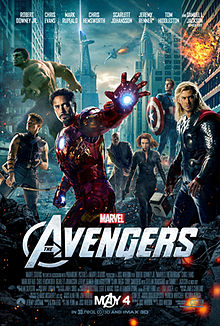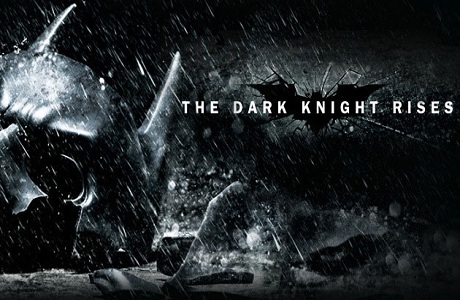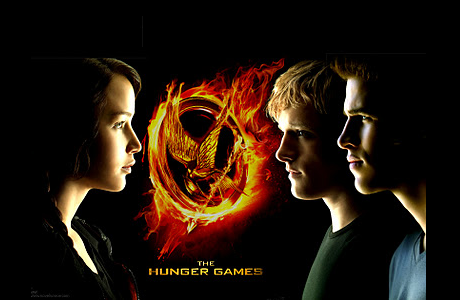There is a rowdy queue of merits associated with the serene art of cinema; perhaps one of the strongest advantages lies in its powerful sense of evocation. For some very privileged people, cinema is able to paint more than just a pretty picture and is fully able to rip into its audience’s soul and juggle with their emotions, their thoughts and feelings. Let me throw some names at you:
Nolan. Tarantino. Spielberg.
Household names; ground-breaking directors who have caused more than a mere stir during their renowned careers and all thanks to one endearing trait: their pure love of cinema. Their contribution has helped make cinema a dominant art form, one which truly caters for everybody with its eclectic style and creative prowess. So it’s really no surprise that the deaths of Tony Scott and Michael Clarke Duncan have packed such a brutal punch.
Tony Scott lived his life in the shadow of his more-critically accepted brother, Ridley (Alien, Blade Runner) yet thankfully, the overwhelmingly positive tributes that have flooded in for the late and certainly great director have focused solely on his aesthetically pleasing body of work. Many will recall the likes of Top Gun, an undoubtedly popular addition to the macho-men volume of Hollywood cinema and far superior to the likes of Charlie Sheen’s Navy SEALS and oh, yes…Iron Eagle.
What Scott lacked in critical backing, he made up for at the box-office. However, unlike film-makers who experience similar critical contrast such as Michael Bay, Scott was a true master of his craft. His ‘on-the-fence’ reviews would usually pin-point a lack of dramatic and narrative resonance (that was attributed so highly to Ridley) yet a picture made to pure perfection. In Poker terms, he was always the Full House opposed to the Royal Flush. His knowledge and dexterous touch as well as sublime craftsmanship were second-to-none and his flicks provided audiences with endless hours of thrills and spills. A truly remarkable, yet severely underrated film-maker.
Michael Clarke Duncan was a unique screen presence. Big Mike stood at 6’ 5” and his muscular frame, imposing stature and deep, booming voice were bizarrely contrasted by his kind, caring nature; or at least that was the way he consistently came across as.
Like many others, the role I’ll always associate him with was that of the (wrongly) convicted child-murderer in Frank Darabont’s The Green Mile. Strongly considered one of the best movies made in the last 20-years or so, The Green Mile was an adaption from Stephen King’s novel of the same name. Duncan portrayed John Coffey (“like the drink, only not spelled the same”), a seemingly uneducated simpleton who had been sentenced to death after being discovered with two dead girls. As the audience learns more about the character in Darabont’s majestic and emotionally charged movie, Duncan himself is a revelation. Never looking like a fish-out-of-water next to co-star Tom Hanks, Duncan was rightly nominated for an Oscar that year for his portrayal which will be remembered for a long time to come.
The point I wish to make is one that rings a beneficial bell in terms of Hollywood. Tributes poured in from all over when the shocking announcements were first made. It quickly became apparent that though neither was considered a household name, both were respected by those who cherish the art of cinema as well as those who perhaps consider themselves casual acquaintances with their local movie theatre. I think it’s a testament to the power of movies and the much-maligned Hollywood that these two figures are being celebrated so much. Scott’s True Romance defined the hyper-stylised and violent movies of the 90s (written by Pulp Fiction’s Tarantino of course) and contemporary film fans hold recent efforts such as Unstoppable starring Chris Pine and Denzel Washington and Man On Fire, again starring Scott-favoured Washington, in such high-esteem.
Duncan also had a varied career; The Green Mile will go down as his magnum opus due to his Oscar nom, but he also starred in many a-blockbuster such as Armageddon, The Whole Nine Yards and Daredevil. He was appreciated by the industry he loved so much and by the fans who flocked to the cinema, even if they couldn’t quite recall his name.
Hollywood is damn-near impossible to break and once you’ve made it, it can knock you back down from whence you came within a matter of seconds. That’s what they say anyway but I believe the likes of Michael Clarke Duncan and Tony Scott oppose that theory. Consistent, efficient, hard-working and reliable; they weren’t stars that shone the brightest and perhaps didn’t always get the recognition they deserved but when it came down to the final haul, both got the rousing send-off they deserved and the industry has suffered a great loss. The beauty of film is that they will always be remembered through their art and cemented within the rich history of cinema forever more.
Tony Scott (21st June, 1944 – 19th August, 2012)
Michael Clarke Duncan (10th December, 1957 – 3rd September, 2012)








